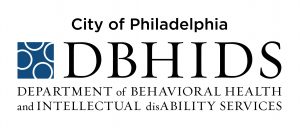- Commissioner’s Office
- Community Behavioral Health
- Division of Planning Innovation
- Behavioral Health Division
- 988 Suicide and Crisis Lifeline
- Single County Authority
- Management Services Department
- Contracts & Budgeting
- Behavioral Health Crisis Intervention Services
- Coordinated Consumer Services
- Housing and Homeless Services
- Heat Safety
- Southeast Regional Planning and Implementation
- Crisis Intervention Team Training
- Division of Intellectual disAbility Services
- Division of Administration, Finance, and Quality
- Behavioral Health and Justice Division
Home » About Us » DBHIDS Organization » Behavioral Health Division » Single County Authority » Mobile Outreach and Recovery Services
Mobile Outreach and Recovery Services (MORS)
The DBHIDS Mobile Outreach and Recovery Services (MORS) team works closely with adults seeking behavioral health care and recovery support services in communities deemed high risk for substance use disorder.
MORS links individuals to care and services through warm hand offs and is on call for rapid response to accidental drug overdose outbreaks and surges to help reduce the rate of fatalities citywide.
MORS also offers short-term case management through its Continuity of Care Initiative. A Case Manager and Certified Peer Specialist can help support an individual’s recovery process.
Services
Services available through the DBHIDS MORS Team include assessment and linkages to:
- Withdrawal management.
- Inpatient rehabilitation.
- Partial hospitalization.
- Outpatient treatment.
- Intensive outpatient treatment.
- Medically monitored/managed long-term residential treatment.
- Recovery housing.
- Case management.
If you are interested in seeking treatment for a substance use challenge, please contact Member Services at our 24/7 hotline 888-545-2600.
Intervention
Intervention includes:
- Assertive community health outreach and engagement.
- Education on substance use prevention, treatment, and care.
- Structured brief intervention and referral to treatment (SBIRT).
- Linkage to most appropriate treatment service/provider.
- Coordinate transport to behavioral health treatment facility/support service.
- Identify and attempt to remove barriers to accessing treatment.
- Connect individuals to resources for wound-care needs.
- Disseminate naloxone and harm-reduction information in targeted communities.
- Empower residents to respond to overdose directly.
- Support City’s rapid response to overdose outbreaks.
Mayor's Task Force
The MORS intervention meets seven recommendations from the Mayor’s Task Force to Combat the Opioid Epidemic related to treatment and overdose prevention:
- Treatment
- Increases the provision of Medication Assisted Treatment (MAT).
- Expands treatment access and capacity.
- Embeds withdrawal management in all levels of care, with an emphasis on recovery initiation.
- Implements warm hand-offs.
- Overdose prevention
- Expands naloxone (Narcan™) availability.
- Establishes coordinated rapid response.
- Addresses homelessness among opioid users.
Additional Resources
- MORS brochure
- Call MORS at 888-545-2600
- Email MORS at MORS@phila.gov


